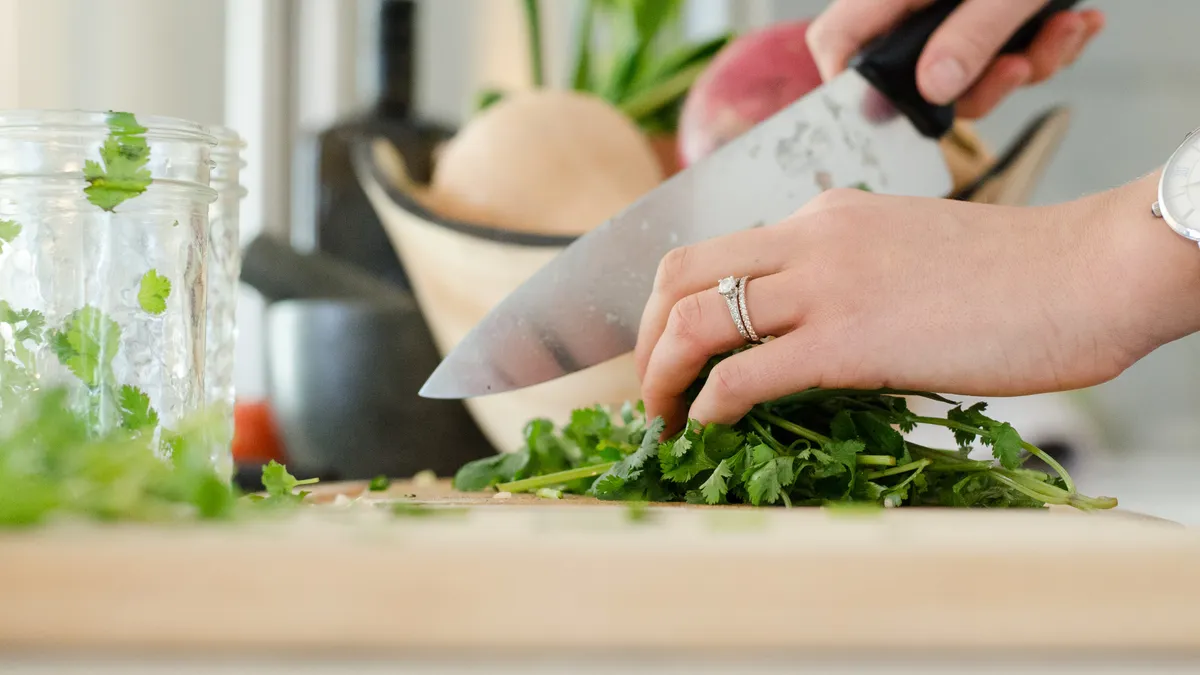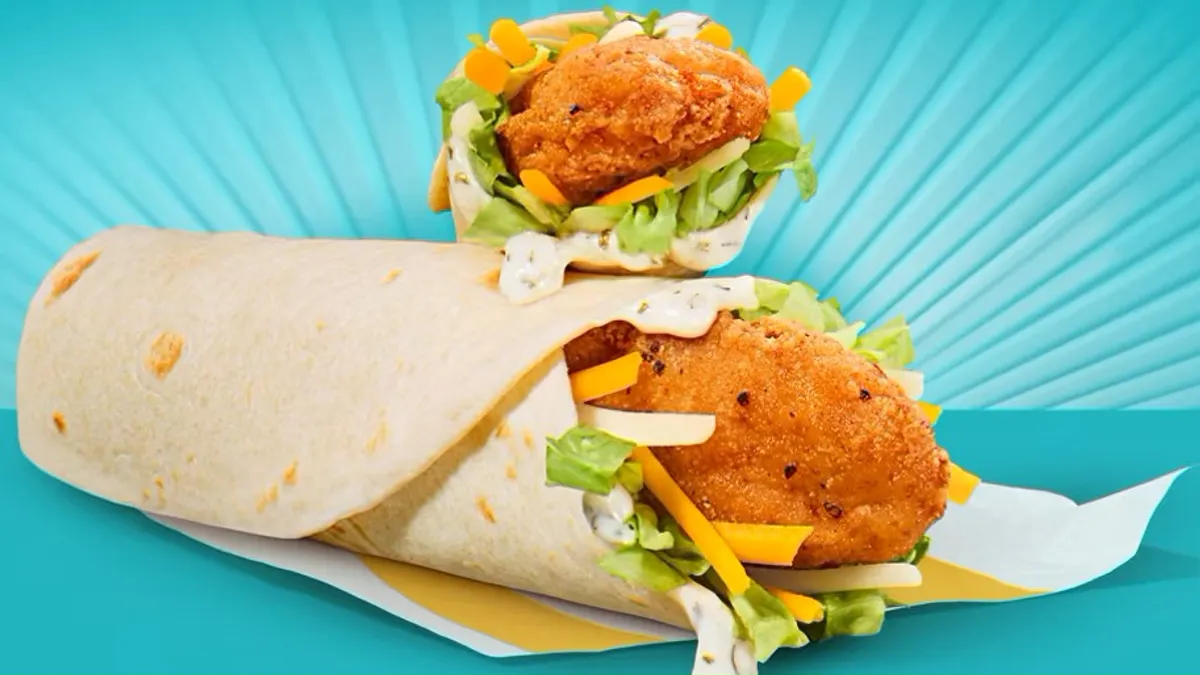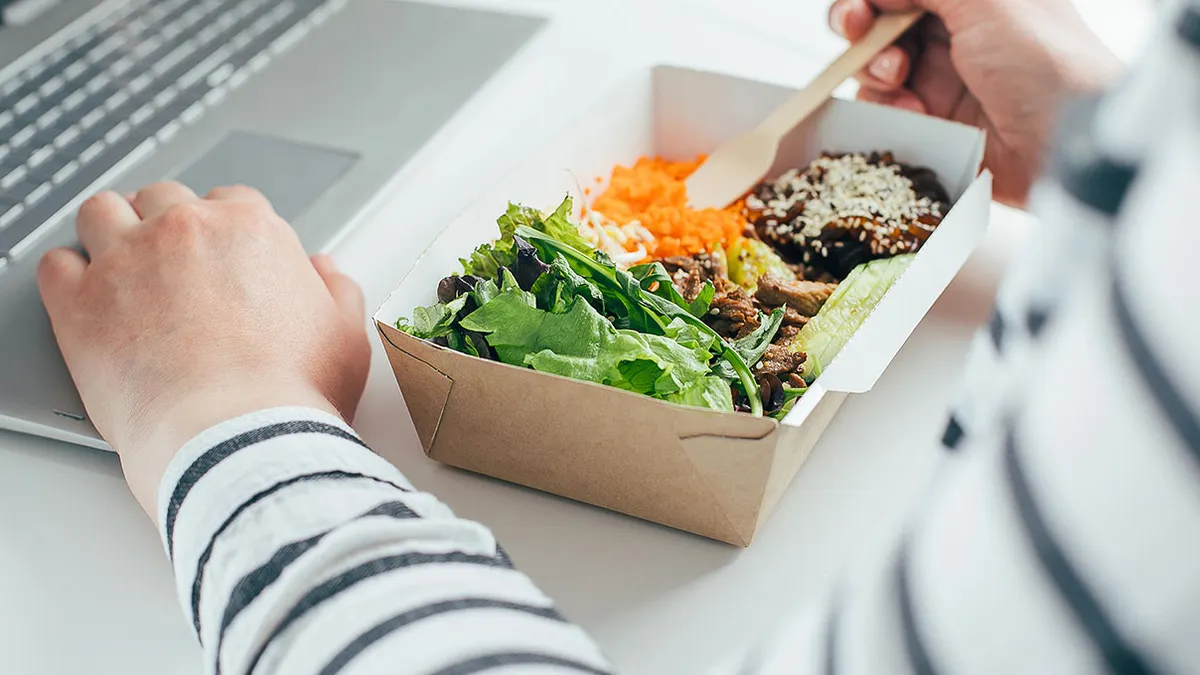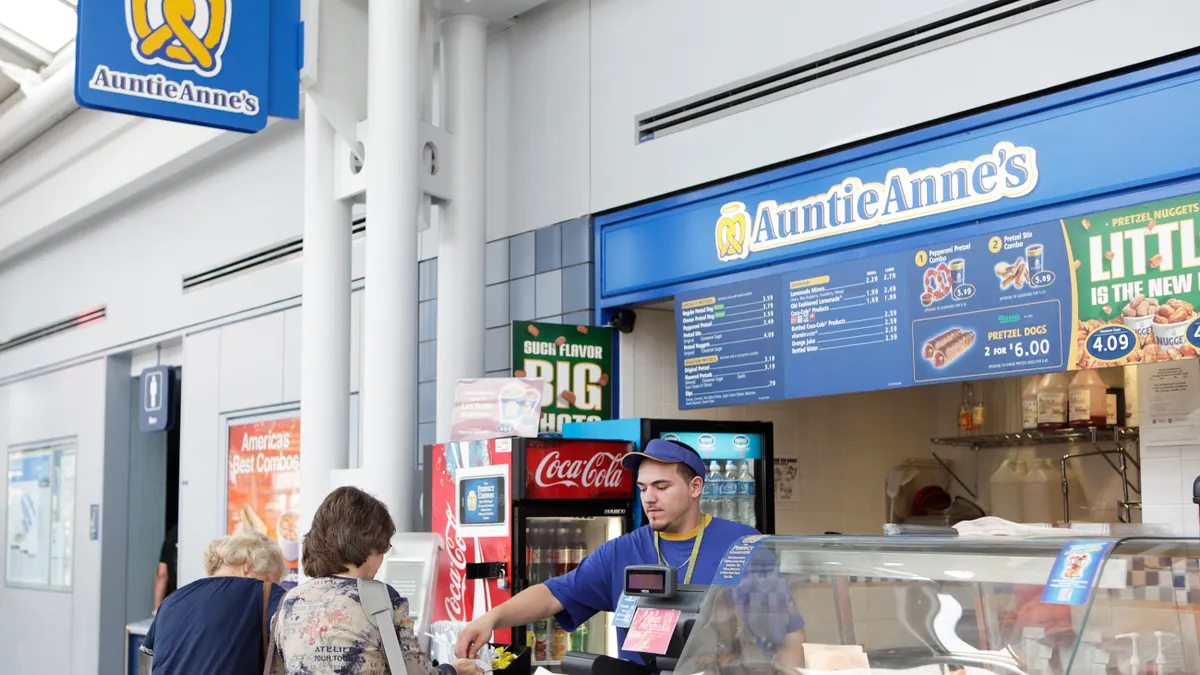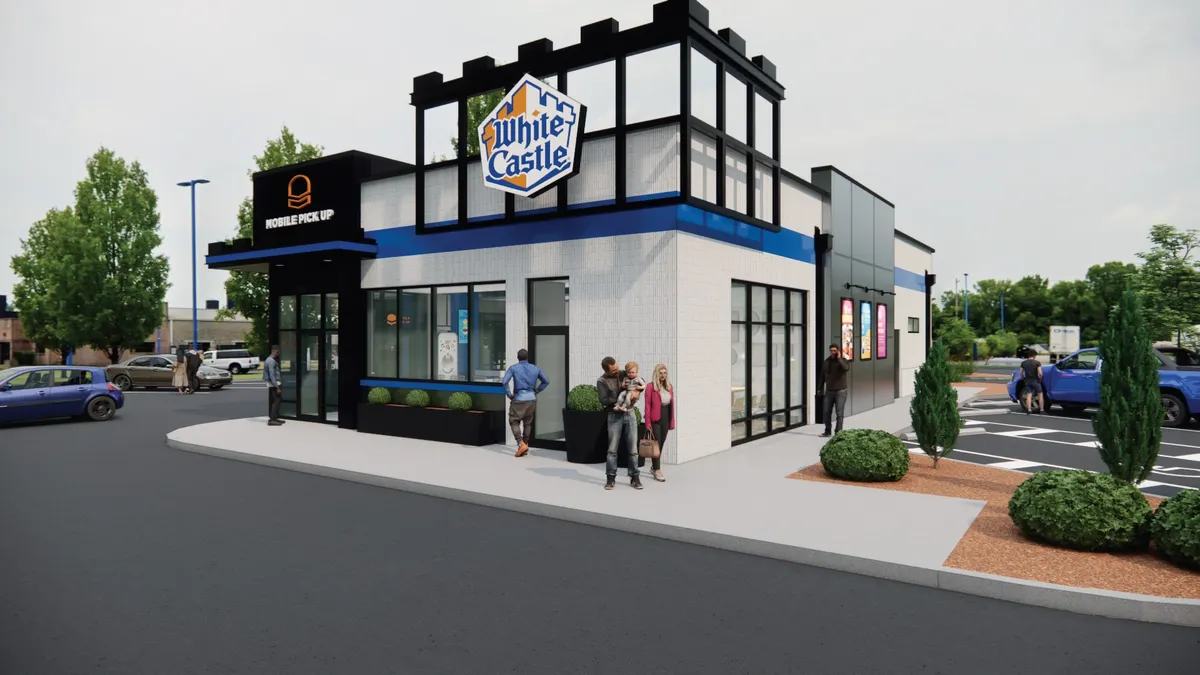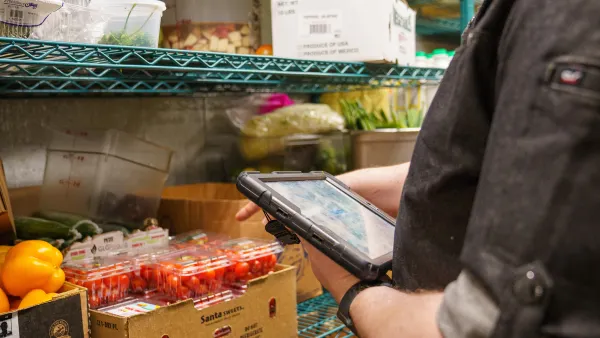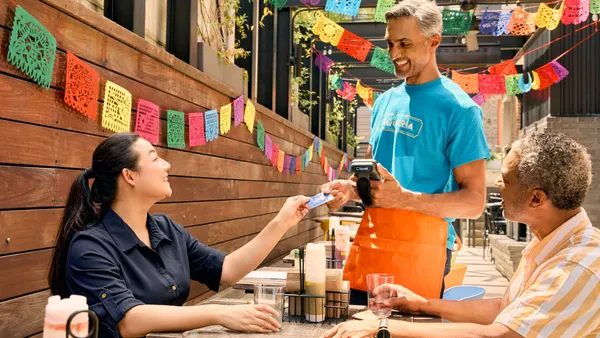It happened on a Tuesday. Juliet and Peregrine, restaurateur Joshua Lewin’s Boston-area sit-down restaurants, were suddenly forced to close their dining rooms in compliance with Massachusetts’ coronavirus restrictions.
Lewin knew he had to create a new revenue stream — and fast — to protect the brands and keep their 50 employees working as orders plummeted. On Wednesday, he and his team began developing plans for a zine called Bean Zine that offers advice for cooking in quarantine. Just 10 days later, the Juliet + Company restaurant group launched another initiative, a “TV” channel streaming on Instagram and YouTube that offers content like how-to cocktail videos. Both are free, but customers are encouraged to donate on Venmo.
“It’s unbelievable how quickly the lives of ourselves, as the business owners, and our entire staff were changed. We needed a safety net,” Lewin told Restaurant Dive. “Instead of laying people off, we said it’s important to continue to connect with our team and use this opportunity to grow.”
The strategy is working. Donations began rolling in as soon as Lewin shared a preview of the zine and video content with the brands’ email lists. Though both restaurants are still operating at an extreme deficit, the restaurant group hasn’t let a single staff member go — 100% of proceeds go straight to its labor budget.
“We require the support of the public… but this [project] allows us to say we need you, but we’re working for you,” Lewin said. “We’re paying a lot of attention to the engagement with the videos… so we are able to offer more of what [customers] are looking for and be in partnership with them as far as how the television evolves past our pilots.”
So far, the restaurant group has shared two bar tutorials online. But Juliet + Company plans to offer a wide range of content in the coming weeks that goes beyond cooking demonstrations, including behind-the-scenes looks at how their businesses run to help budding restaurateurs, and skillshare-style videos celebrating the talents of its staff, like ballet and tai chi. The team is starting slow, with plans to produce two videos a week.
“We require the support of the public… but this [project] allows us to say we need you, but we’re working for you."

Joshua Lewin
Head of cooking, creative direction and editor at large, Juliet + Company
Though producing videos and a zine would be a stretch for most thin-margined restaurants to produce at a moment’s notice, publishing is actually central to Juliet + Company’s ethos. The restaurant group has published a magazine, called “of Juliet,” three times per year for two years. The group also launched a cookbook called “our market season” last summer that focuses on how to cook seasonally.
“We’ve never produced this level of video content beyond basic social media advertising,” Lewin said. “But we do have a media presence that at least our core guests expect from us.”
Bean Zine, which focuses on how to cook creatively with what you already have in your pantry, is available to download for free online, but the restaurant group is also selling paper copies for $10 that the team assembles, prints and staples themselves.
“[Our customers] are used to a certain kind of standard of elegance and put-togetherness in the core of our work,” Lewin said. “But it’s like we stepped into an alternate reality here and have to be a little bit more scrappy and return to our roots… it’s an exercise in learning to evolve in the moment.”
While Juliet + Company employees aren’t required to participate in the production process, the platforms allow staff to make money on the books and show off their talents in a new way, Lewin said, whether by planning production schedules, editing or starring in videos on a one-off basis.
Employee hours have been reduced roughly 60% so staff can access Massachusetts’ WorkShare Program, which allows staff members to claim unemployment benefits even if they are still working. “Our basic expectation for staff right now is that they’re available for telemeetings and various trainings that we’re putting together related to the core of their work,” Lewin said. “But that only amounts to so much… there’s very, very little restaurant work to do.”
Neither Peregrine nor Juliet have ever offered delivery, via an in-house team or third-party partner, and Lewin doesn’t plan to start now. Instead, both restaurants are offering takeout, but at a major loss — pickup orders have replaced 8% of the restaurant group’s revenue, and it’s running 40% of its labor budget.
“This is why I’m focusing so much attention on how we can reach people through alternative methods,” Lewin said. “[Media] was never supposed to be our primary business. It was a hobby business on the side that our staff was involved in whenever they wanted to be… but in this reality, the foodservice is making almost nothing.”
The restaurants’ takeout menus change daily so meals can utilize perishables that are already in-house. Each brand creates an updated web store once a day where diners can order meals for pickup during specific windows of time.
The group is trying to avoid staffing cooks all day long since traffic is so reduced, and has also streamlined operations to try to prevent the spread of the virus in the community, Lewin said.
“It’s obviously a huge business choice to limit the operations in that way,” Lewin said. “But we feel like the public health is actually at risk from trying too hard to capture too much takeout, having too large of a menu, too large of a pickup window… These are tough questions that we wrestled with almost every morning. It’s like going to the Situation Room and figuring out how we’re going to survive the day.”
Though Lewin is excited by the support Juliet + Company’s videos and zine have received so far, he said what his restaurants really need to survive the coronavirus crisis is government aid. Massachusetts recently created a $10 million small business loan fund to ease the financial pressure of shutdowns, and Lewin thinks that the government’s $2 trillion coronavirus stimulus package is a good first step for restaurant support, but that foodservice needs more targeted relief.
"[Media] was never supposed to be our primary business. It was a hobby business on the side that our staff was involved in whenever they wanted to be … but in this reality, the foodservice is making almost nothing."

Joshua Lewin
Head of cooking, creative direction and editor at large, Juliet + Company
“We’re trying to support and sustain ourselves for as long as we can, but restaurants around the country, ourselves included, really need some comprehensive government support,” he said. “Restaurants employ millions of people, people that really need those jobs. If restaurants close permanently, those jobs won’t come back for a long time.”
Still, Lewin is determined to continue flexing Juliet + Company’s editorial muscle to make informative, entertaining content for customers and to keep his staff employed as layoffs sweep through the restaurant industry.
“We’re working as hard as we can. We’re trying to be as creative as possible and offer quality from our company,” Lewin said. “Fifty people are affected here… we’re just trying to wake up every day and remain a part of their lives and careers, [and] give them the security of knowing that work is still here, and that our company stands for something."



